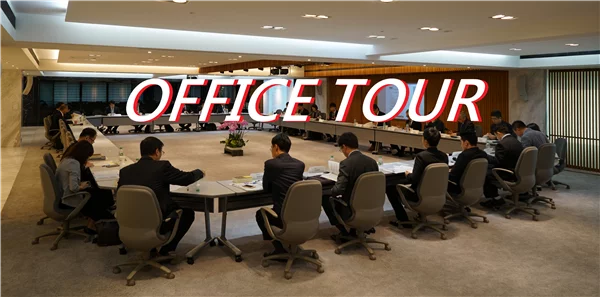The CLA Contemplating to Relax Regulations Governing Financial Services and Public Transportation to Go On Strike. Opposing Voices Arising From Financial Supervisory Commission and Industrial and Commercial Organizations.
E090321Y9 Apr. 2009(E113)
On 20 March, the Council of Labor Affairs’ (CLA) Committee Member held a meeting which passed amendments to the Settlement of Labor Disputes Law and Labor Union Law. The above-mentioned amendments greatly relaxed regulations that governing professions such as financial services, public transportation, petroleum and communication (among others) to go on strike. Further, the 30-day cooling day is repealed. In other words, labors can go on strike without giving any prior notice.
In the future, labors can also set up industrial union among different industries. For example, subsidiaries among a holding company can set up industrial union for combating the management’s unfair treatment such as willful salary reduction and forcing employees’ to take unpaid leave.
These two amendments are expected to be reviewed by the Legislative Yuan in early April. The CLA indicated that the purpose of the amendments is to allow labor-management to have a more efficient negotiation channel, balance their relationship and elevate the quality of human resources, and reduce government interference.
Although the CLA has agreed for a more relaxed regulation governing the general financial industries to go on strike; however, the CLA still has concerns over financial institutions such as stock exchange center, futures trading exchange center, over-the-counter market, and the others.
The amendments prohibit military and civil servant to go on strike. Four other industries, namely: hospital, electricity and gas supply and water resources will require labor-management to reach consensus on required terms of services including limitation of the number of days to go on strike and conditions thereof before being allowed to go on strike.
The CLA is considering to prohibit hotlines such as 110, 119 and others to go on strike. The CLA will have to negotiate with National Communications Commission (NCC) before finalizing the amendments.
The amendments have simplified the legally required procedures. In the past, labor union has to reach consensus in the general meeting before calling a strike. In the amendments, anonymous voting with majority vote will be sufficient to allow labor union to go on strike without convening a general meeting. In the future the Assembly and Parade Act will no longer govern strike which takes place within reasonable geographic locations.
In addition, independent mediation and sole arbitrator mechanism which were rarely used before are now added into the amendments of Settlement of Labor Disputes Law. The committee system formed by the labor-management is now under the supervision of the independent professional elected by the CLA.
The amendments also allow foreign labor to take the position of the board member. This will better protect the rights and interests of foreign labors.
Financial Supervisory Commission & Brokerage Firms Strongly Oppose
High-ranking officials of the Financial Supervisory Commission (FSC) noted that negative impacts on trading order and the investors’ (both domestic and overseas) rights and interests will result from the CLA proposed amendments aiming to relax regulations governing securities and futures trading clearing staff and custodians to go on strike. The Financial Supervisory Commission officials intended to raise objection to the said proposed amendments during the Executive Yuan’s forum.
The FSC noted that once the Taiwan Stock Exchange (TWSE), Over-the-Counter (OTC), Taiwan Futures Exchange, and the Taiwan Depository & Clearing Corporation go on strike then the public interests will be greatly affected. In consideration of the national and social security, economic stabilization and well-being of the general public, it is relevant and essential to prohibit the above organizations from going on strike.
The Taiwan Securities Association (TSA) points out that financial and securities industry is different from the other general industry. In other words, the TSA finds that the CLA should focus aiming at general industry instead of financial industry, which should be governed by competent financial authority.
MOTC: 3-Day Prior Notice Required
The Ministry of Transportation and Communications (MOTC) indicated that with regard to the CLA proposed amendments, as public transportation is closely related to the daily activities of the general public, a 3-Day prior notice is essential for the relevant competent authority to handle the emergency situation.
It is not feasible for entities such as railways, highways, airways, and the other entities which are under the MOTC to take part in the strike on the next day after the decision is made. This will severely affect the general public from taking the transporting vehicles, therefore the competent authority should be given sufficient time to make public announcement and to take the relevant measures against such strike. (2009.03)
/DC














